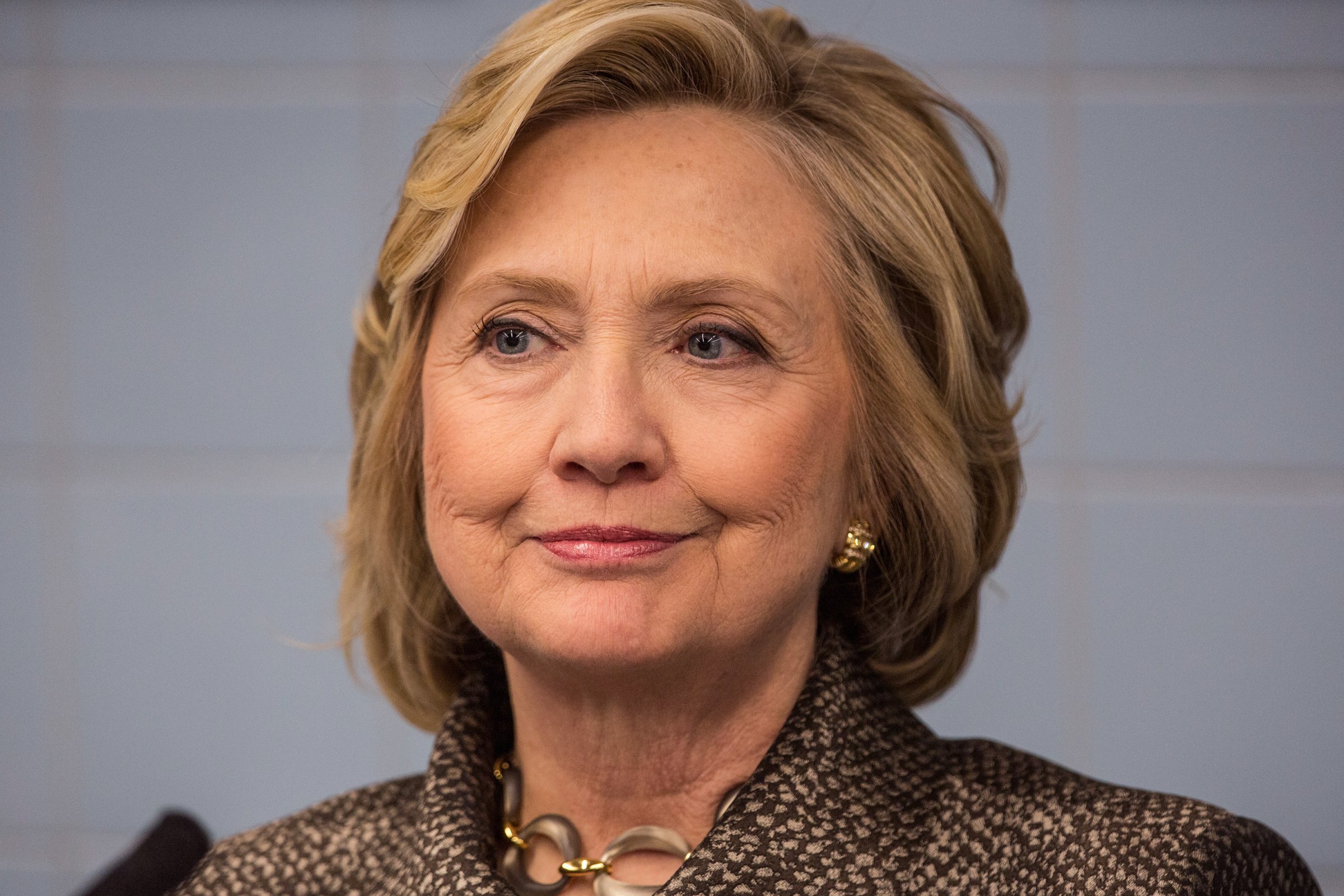
When Hillary Clinton launches her campaign for president in a video message on Sunday, she’ll begin a long journey toward the Democratic nomination chastened by the tough lessons of the past.
In 2008, the apparent inevitability of Clinton’s presidency undermined her campaign, and voters in key states viewed her as indifferent and distant. She succumbed in June to a stunning loss to then-Sen. Barack Obama for the Democratic nomination.
Not so this year, aides say. This election cycle, Clinton plans to run a hard-fought and intimate campaign, courting voters not as the overwhelming frontrunner that she is, but as a scrappy upstart might.
Clinton’s aides are seeking to lower expectations for what Candidate Clinton will look like on the campaign trail after she launches her bid on Sunday. Wary of appearing like the front-runner she is, aides say Clinton is planning a slow, small-scale roll-out beginning next week in Iowa and New Hampshire.
Read More: Hillary Clinton’s Main Obstacle: Her Own Inevitability
Clinton’s early plan in those states revolves around cozy interactions with voters to communicate her interest in the early states, while avoiding over-produced campaign rallies that reinforce the air of inevitability.
But can a Clinton event ever be small? As a former First Lady Clinton is surrounded by the trappings of political life: a Secret Service detail, a large political staff, an even larger press corps.
One aide mused that at some early events there may be more members of the press than voters.
Clinton has little choice but to run hard in Iowa—where her first campaign was doomed in 2008, and where skeptical progressives hold major sway in the caucuses. Clinton placed third in the Buckeye State with 29.5 percent of the vote, and aides expect long-shot rivals to rack up much more than that. “A win is a win,” said one Clinton aide, trying to tamp down expectations in the state.
In Iowa, the state where Obama first made crucial inroads and brought down the Clinton operation, voters expect intimate chats with candidates in their living rooms and huddled chats in dining rooms. Her challenge will be to appease frustrated Iowa voters who saw her as blasé and uninvested in their state.
“Iowans are going to demand answers from Hillary Clinton,” says one Democratic strategist. “She’s got to have a message, and she’s got to make a case. She didn’t do that eight years ago.”
Meanwhile, Clinton will begin raising money. The Ready for Hillary super PAC has already raised close to $15 million from nearly 150,000 donors, laying the groundwork for a grassroots fundraising operation. Major donors are waiting on the sidelines for Clinton’s announcement, and her family’s longstanding connections on Wall Street and with businesses will help fuel her through the nomination process.
Read More: How Hillary Clinton Will Handle Populist Critics
Clinton will be the third candidate to enter the race, behind Sen. Rand Paul and Sen. Ted Cruz on the Republican side. Many Republicans, as well as likely Democratic candidates former Gov. Martin O’Malley and former Sen. Jim Webb already been touring heavily in Iowa and New Hampshire. She has consistently led in polls against her likely Democratic competitors, as well as against Republicans.
When she arrives in Iowa next week, Clinton will bring with her the reminder of her loss eight years ago.
“She has the incredible political advantage of having already run for president,” says Democratic strategist Anita Dunn, who was a spokeswoman for President Obama. “She knows what it takes and how to go about it from some of the hard lessons learned from 2008.”
More Must-Reads from TIME
- Donald Trump Is TIME's 2024 Person of the Year
- Why We Chose Trump as Person of the Year
- Is Intermittent Fasting Good or Bad for You?
- The 100 Must-Read Books of 2024
- The 20 Best Christmas TV Episodes
- Column: If Optimism Feels Ridiculous Now, Try Hope
- The Future of Climate Action Is Trade Policy
- Merle Bombardieri Is Helping People Make the Baby Decision
Contact us at letters@time.com